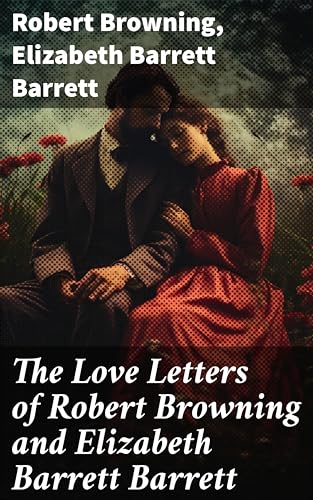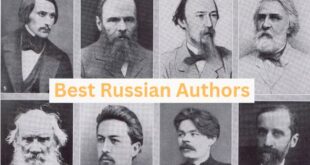Table of Contents
ToggleLove Story of Elizabeth Barrett and Robert Browning
Elizabeth Barrett Browning and Robert Browning, both celebrated poets of the Victorian era, shared a remarkable and enduring love story that unfolded against the backdrop of their literary pursuits. Their correspondence and eventual marriage have become legendary, symbolizing a union of hearts and minds.
The Beginning of a Literary Connection:
The story commenced in the mid-19th century when Robert Browning, already an established poet, discovered the poetry of the reclusive Elizabeth Barrett. Struck by her literary prowess, he wrote her a letter expressing his admiration. Elizabeth, who was living a secluded life due to poor health and a controlling father, responded warmly, marking the inception of a profound literary connection.
Secret Correspondence:
The exchange of letters between Elizabeth and Robert became a clandestine avenue for the expression of their thoughts, feelings, and burgeoning affection. Elizabeth, confined to her room by illness, found solace in the written words of Browning. This correspondence, preserved in history, reveals the blossoming of a deep emotional bond.
Love Triumphs Over Adversity:
Despite Elizabeth’s fragile health and the disapproval of her father, who was controlling and opposed to suitors, the couple’s love prevailed. In 1846, they married in secret and embarked on a life together. Their union allowed Elizabeth to escape the confines of her restrictive household and rejuvenated her health.
Italy: A Romantic Refuge:
The Browning’s settled in Italy, a place that held special significance for their love story. Here, surrounded by the beauty of the Italian landscape, their creativity flourished. They reveled in the joy of being together, free to explore their literary passions and to celebrate the transformative power of love.
The Poetry of Love:
Elizabeth Barrett Browning’s “Sonnets from the Portuguese” stands as a testament to the intensity of her feelings for Robert. Meanwhile, Robert Browning’s poetry, including works like “The Ring and the Book,” reflects the depth of his love and admiration for Elizabeth. Their verses immortalize their profound connection.
Legacy of Love:
The love story of Elizabeth Barrett and Robert Browning is not merely a personal narrative; it is a cultural and literary legacy. Their union exemplifies the intersection of personal and creative lives, showcasing the power of love to inspire and elevate artistic expression.
In conclusion, the love story of Elizabeth Barrett and Robert Browning is a tale of two souls intertwined through letters, passion, and shared literary pursuits. Their enduring connection has left an indelible mark on literature, providing a timeless example of the profound influence love can have on the hearts and minds of those who dare to express it.
The literary love story of Elizabeth Barrett and Robert Browning is a captivating tale of two renowned poets whose romantic connection blossomed through their shared love for literature. The story began in the mid-19th century when Robert Browning, an admirer of Elizabeth Barrett’s poetry, wrote her a letter expressing his appreciation for her work.
Elizabeth, who was dealing with health issues and a reclusive life under her father’s strict control, responded warmly to Browning’s letter. This marked the beginning of a secret and passionate correspondence between the two poets. Despite Elizabeth’s fragile health and her father’s disapproval of suitors, their connection deepened through the exchange of letters.
In 1846, the couple eloped and married in secret, as Elizabeth’s father strongly opposed the union. They settled in Italy, where Elizabeth’s health improved, and they enjoyed a life of love, creativity, and intellectual companionship. Elizabeth Barrett Browning’s “Sonnets from the Portuguese” is a famous collection that reflects her intense love for Robert, and his love is evident in works like “The Ring and the Book.”
Their literary love story is not only documented in their private correspondence but also in the poetry inspired by their relationship. The Browning’s’ love story is considered one of the most enduring and romantic in the history of literature, showcasing the transformative power of love and the intersection of personal and creative lives.
The Love Letters of Elizabeth Barrett and Robert Browning
The love letters of Elizabeth Barrett and Robert Browning are a collection of intimate correspondence exchanged between the renowned poets Elizabeth Barrett Browning and Robert Browning during the 19th century. Their love story began in 1845 when Robert Browning wrote a letter to Elizabeth expressing his admiration for her poetry. Despite Elizabeth’s delicate health and her father’s disapproval, the two poets began a secret and passionate correspondence.
Over the course of their letters, Elizabeth and Robert shared their thoughts, feelings, and dreams, creating a deep emotional connection. In 1846, they secretly married and moved to Italy, where they enjoyed a life of relative seclusion.
The love letters reveal the profound affection, intellectual companionship, and mutual admiration between Elizabeth and Robert. Their relationship is considered one of the most famous and enduring love stories in literary history. The collection of their letters provides insight into the poetic minds of these two influential writers and the profound love that fueled their creative spirits.

